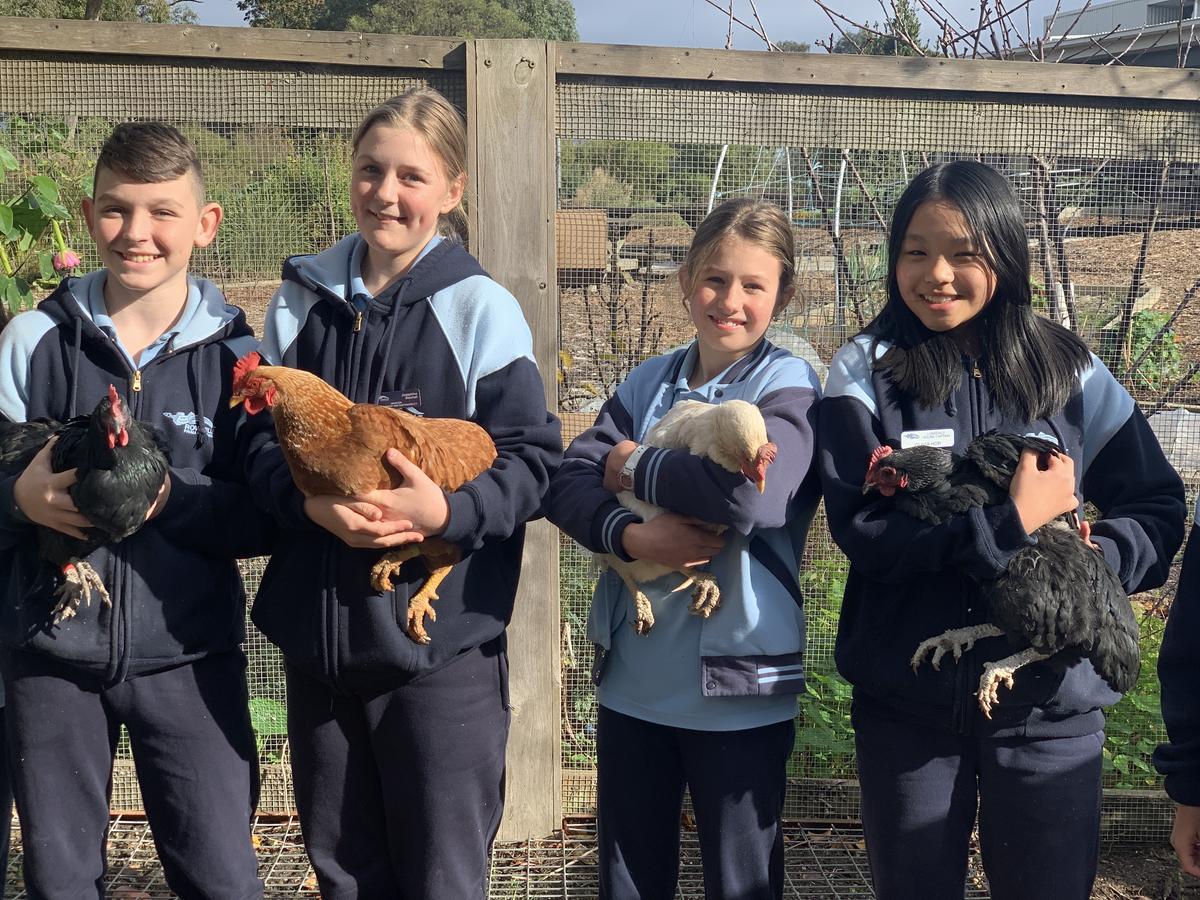From the
Principal

From the
Principal


Dear Parents / Carers,
Term two will end at 2.30pm on Friday 24 June. It has been wonderful to have our students onsite for an entire term. We have managed to navigate illness and COVID and still provide both a comprehensive classroom and specialist program for our students. Enclosed is the latest Friday news program that has been produced by our senior students. Our Foundation students performed an Italian song at assembly last week that has been reported in this edition.
At the end of this term, we will farewell our chickens who will be going to a farm to commence a well-rewarded retirement. They have been producing eggs for our kitchen for the last seven years and will enjoy a slower pace of life on Ms Butcher’s family farm. We have commenced a recruitment process to replace our chickens. The chicken shed will be renovated during the break. We wish our chickens a happy retirement.


Term three will commence at 8.45am on Monday 11 July. This is advance notice that the school will be closed for a teacher professional practice day on Wednesday 31 August. The school will also be closed for a curriculum day on Monday 12 September and not Tuesday 13 September as previously planned.
Much of the teaching that happens in schools is designed to equip our students with the social skills that will help them succeed not only at school but in life in general. When things go wrong in an interaction between one or more students we consider it to be an opportunity for social learning. An important social skill is conflict resolution. How do we respond effectively to a high level of emotion in others? This includes de-escalating confrontation and appropriate assertiveness.
Teaching children conflict resolution skills provides them with strategies for making their lives in the classroom and playground happier and more productive. It also gives them lifelong advantages in their future relationships and career prospects.
Conflict arises when there is a disagreement about what did or what should happen. It sometimes arises when a person believes that another has violated their right or harmed them in some way. It arises when what one person wants is incompatible with what the other wants.
With any conflict situation there are three concerns: The first is for ourselves, achieving what we want, the second is maintaining an appropriate relationship with the other person and thirdly, being fair.
Conflict always feels uncomfortable but it is usually better to try and resolve the issue. However, some people are so frightened of conflict that they seek only to avoid it, rather than use it in a constructive manner to strengthen relationships and build group morale. The benefits for a classroom situation from accepting conflict as an inevitable part of daily living are many. Teachers constructively use such situations as learning and growth opportunities.
Students who learn to constructively deal with conflict in their daily living usually demonstrate greater academic achievement, higher morale, increased ability to reason, constructive release of tension, increased trust of others and a need for less behaviour management.
Our teachers help students to understand that it is healthy to disagree sometimes and that navigating your way through a situation can lead to stronger relationships. That is why teachers work to ensure that all members of the class have the opportunity to learn good skills for resolving conflict.
It’s easy to jump in and fix the problem, but coaching children on their conflict resolution skills is a more useful strategy with many long-term benefits. Helping children to listen to each other, to see another point of view, and to problem-solve so everyone's happy promotes equality, fairness and avoids an unhelpful ‘win-lose’ mentality.
Some of the strategies that teachers use for conflict resolution which can be reinforced at home include:
Help children think of different ways to solve the problem – what are all of the possible solutions? Building win-win solutions - helping children choose a solution that’s fair to everyone from the options they have generated.
When teachers and parents provide coaching for students to solve their own problems rather than providing the solution, they are providing them with a valuable learning experience.
As the saying goes, “Think about what is right rather than who is right”. This is part of an overall strategy to creating a safe and supportive learning community and empowering our students with strategies for resolving conflict.
Anne Babich
Principal